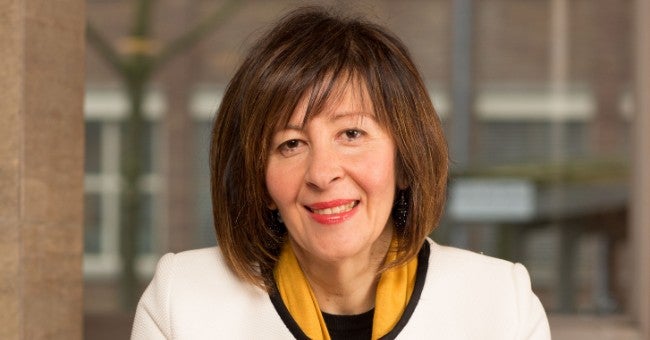Do I have coronavirus? Holding your breath for ten seconds without coughing proves you don’t. And what’s a good remedy? This disease can be alleviated by drinking bleach, or better still, a nice, fresh glass of cow urine. Fake news is flourishing these days, but why? We asked Ivar Vermeulen, associate professor in Communication Science and fake news researcher.
The corona crisis is an excellent breeding ground for fake news. Admit it, you’ve Googled your symptoms too, to see whether that hint of a sore throat or that dry cough might be the first signs that you’ve contracted the virus.
According to Vermeulen, that’s completely normal behaviour. "People see the news and get worried. They actively seek out information to protect themselves. But while the normal media has a limited amount of new information to report, the ‘hunger’ for news is much greater, so people also read things posted on social media. These messages are read and forwarded a lot, especially if they say something different to what’s been reported in the mainstream media. And how many forward a message from the RIVM that’s also reported on normal news sites – what’s the added value of that?"
"Other interests also play a role."
But the creators of all that fake news stand to earn a great deal from it, and that’s what makes the production of misinformation so attractive. "It’s very rewarding to make these sorts of news items. There is a high level of engagement with the items because a lot of people want to share bizarre news or new information, and this means that the advertising revenue is correspondingly high," says Vermeulen. Other interests also play a role. According to Vermeulen, there are always parties who seek to destabilise things, or ordinary ‘trolls’ who enjoy knocking people off balance.
Yet you’d think we’d know better by now, and no longer rely on shady websites that flood the world with all kinds of extreme claims. However, that’s not so simple, says Vermeulen.
"People suffer from an information lag. They don’t understand, or only half-understand, how viruses work or how they spread. That makes it easy for them to be led up the garden path. Many people do have a sense of distrust, but it’s more often aimed at the mainstream media or medical institutions. As a result, people are more inclined to believe in all kinds of conspiracy theories, such as that big pharma would block particular developments or medicines out of financial motives, but also that the government, including the RIVM, is withholding information about how contagious the virus is, for example. Or that a GP or a Vietnamese doctor or a medicine man has made a discovery that is one hundred percent effective, while the scientific world is miles behind. And the simple belief that the Dutch government will take the worst possible approach to this crisis continues to thrive, as always."
"In times when fake news holds sway, traditional news sources are incredibly important."
For people who want to totally eliminate fake news, Vermeulen recommends looking critically at the source of the story. It’s actually very simple. "Keep to this rule of thumb: Well-known or recognised news sources, such as newspapers, NOS and nu.nl, do not publish fake news. If a news item comes from a shady source, or doesn’t cite a source at all, you can almost always assume that it’s fake news. In the past few years, I can’t remember ever getting reliable or important news through social media that wasn’t also quickly available in the normal media. In times when fake news holds sway, traditional news sources are incredibly important, because they are almost always capable of distinguishing fake news from factually accurate news, and therefore functioning as a necessary filter."
When asked whether the government should intervene more in the spread of misinformation given the danger it represents in terms of destabilising society, Vermeulen says that it shouldn’t.
"That isn’t a task that the government should be concerning itself with. At the most, it can provide a budget for fact-checking, or start up a campaign. But when it comes to real intervention in the content of news, this should be done by independent organisations, such as existing news organisations. Governments should have no influence on the content of news coverage, except by creating an environment that is favourable for reliable reporting."








